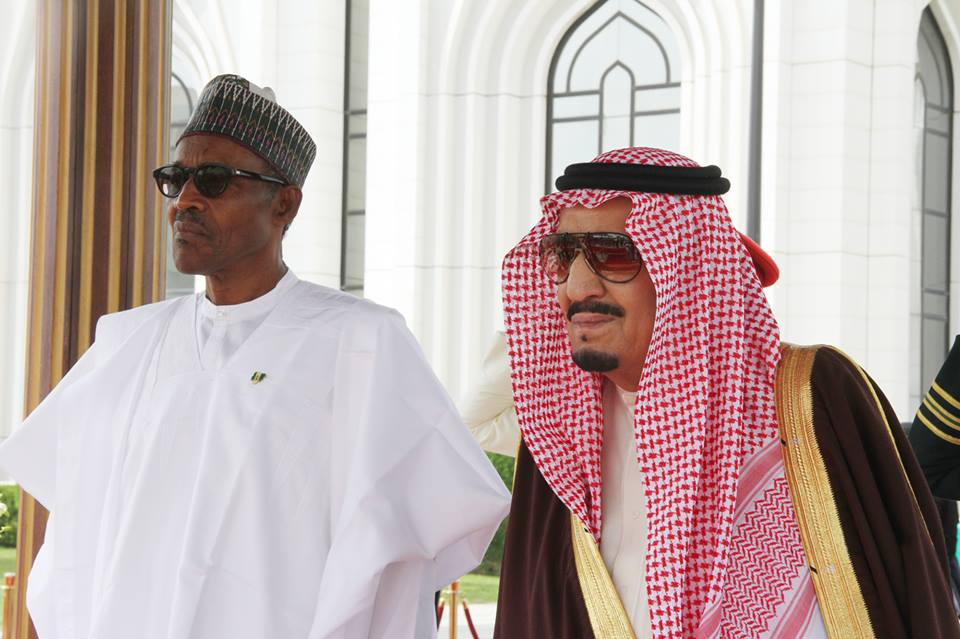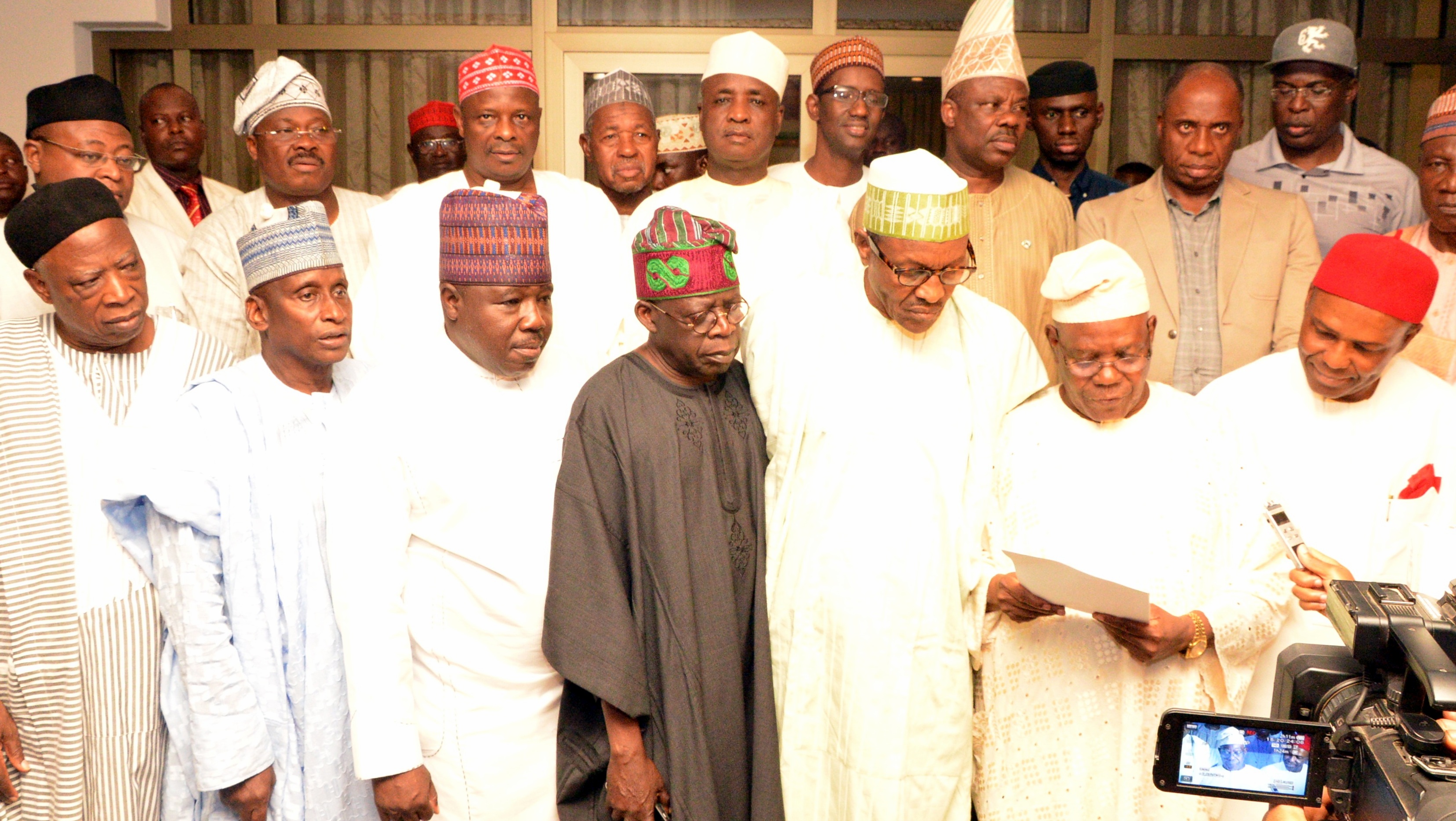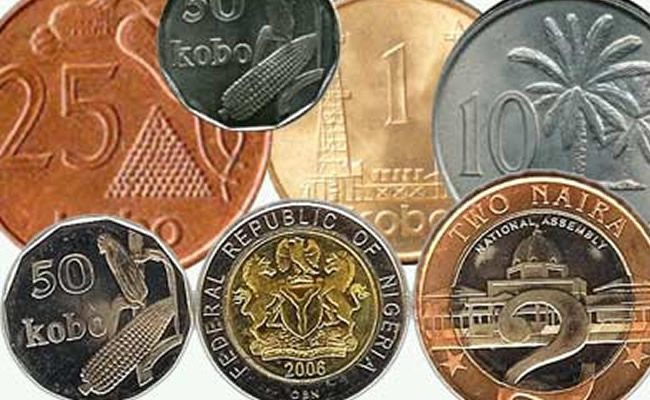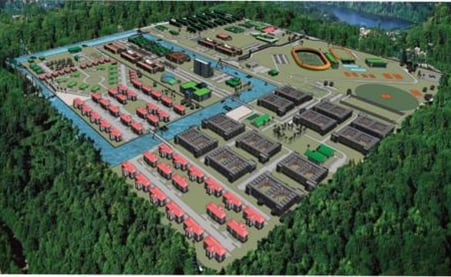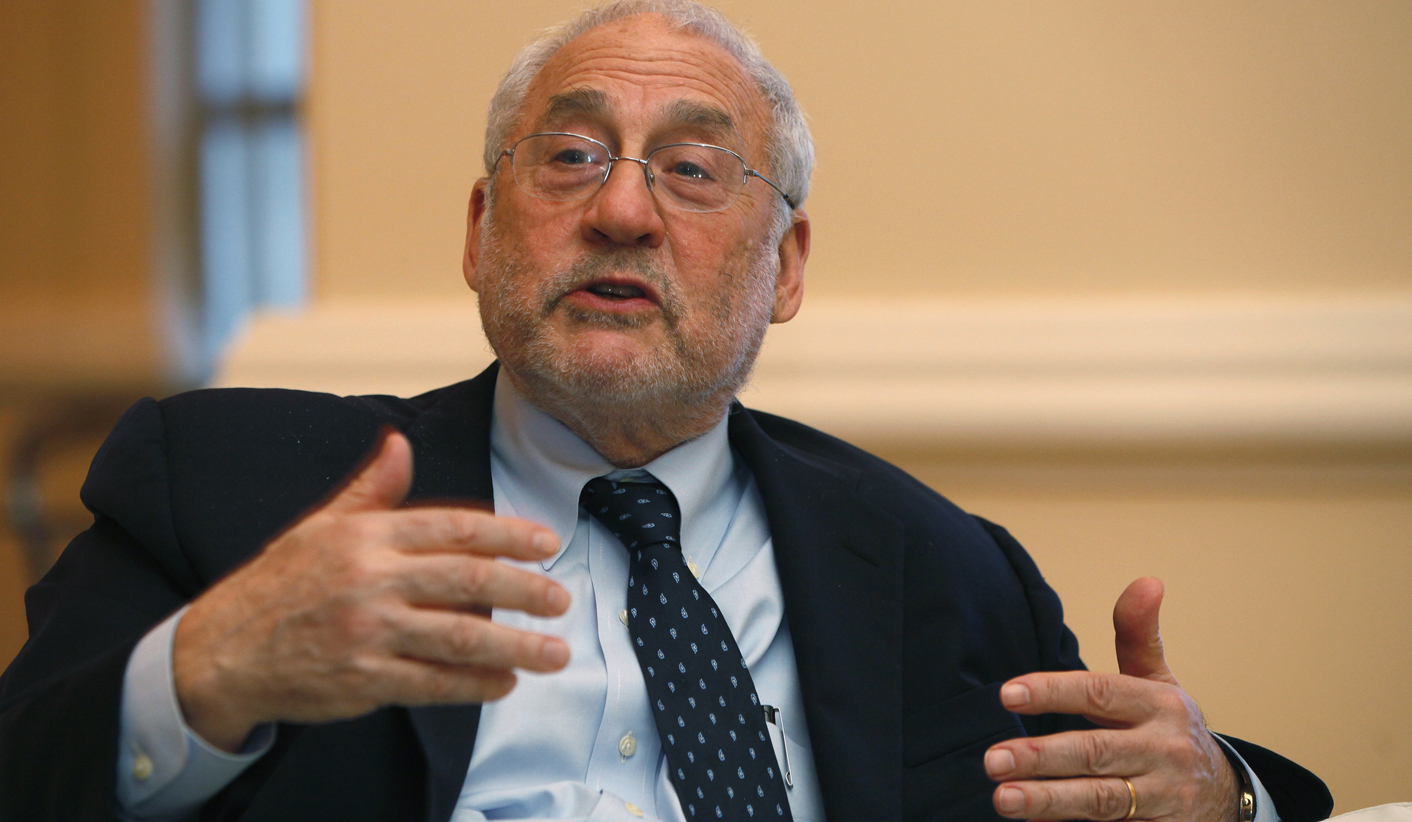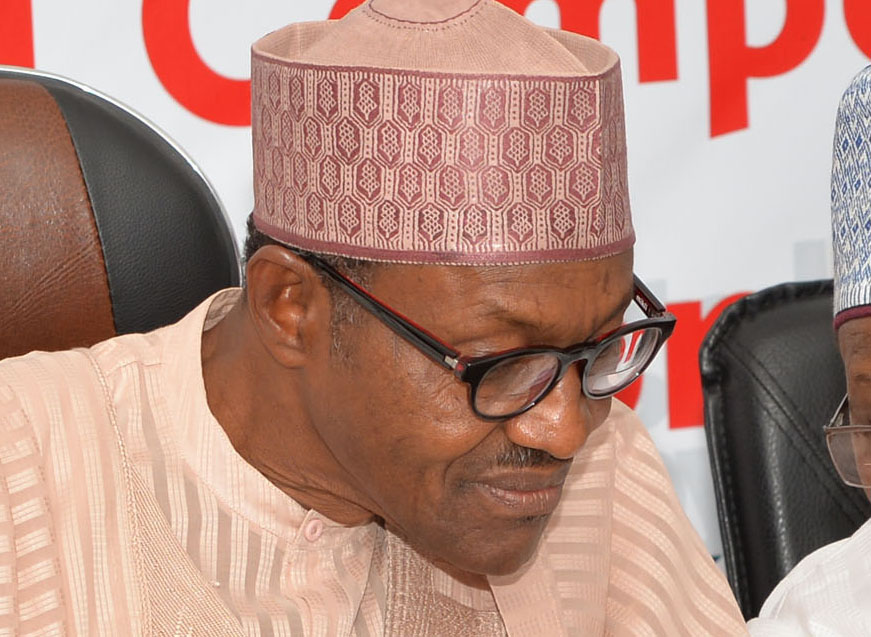KING SALMAN BIN ABDULAZIZ ALSAUD AND PRESIDENT MUHAMMADU BUHARI
BY EMMANUEL UCHENNA UGWU
President Muhammadu Buhari is yet to reconcile himself to the extant post-oil world order. He is yet to attune his sense of reality to the fact that ‘oil-rich’ nations no longer have an insured future of fortune. That mono-product, import-dependent petro states now have an existential curveball challenge of locating their prosperity outside petrodollar windfalls.
Even though the price of crude has slouched to a relatively steady normal of $30 per barrel, a fall of over 70% percent since June 2014, and the mix of volatile dynamics that dictate crude price don’t promise a sustainable rise in the future, President Buhari seems steeped in the delusional hope that the slump in oil price is momentary. Oil price would sooner rebound to such rates of halcyon days as filled Nigerian treasury with abundant cash.
This naivety informed Buhari’s trip to Saudi Arabia and Qatar.
He traveled to Riyadh to persuade the King of Saudi Arabia to commit to a supply cut which would force an increase in crude value. He made the same pitch to the Qatari leadership.
Saudi Arabia and Nigeria should ordinarily collaborate to work up crude price. The fall of crude price has both oil exporting countries in the same fix:
Oil accounts for 77 to 88 percent of Saudi total revenue to oil. Oil accounts for a comparable percentage of Nigeria’s total revenue. Nigeria’s proposed 2016 budget has a deficit of $11.21 billion. Saudi Arabia’s 2016 budget has a deficit of $87 billion.
Advertisement
A press statement by the Senior Special Assistant to the President on Media and Publicity, Garba Shehu, reported that Buhari’s discussion with Saudi monarch, King Salman Bin Abdul-Aziz, was fruitful. The two heads of state agreed to work together to eventuate a rebound in crude price.
But a concurrent incident elsewhere suggested that King Salman’s promise to Buhari might be no more than an entertainment in diplomatic hospitality.
At about the same time the Saudi monarch was holding talks with Buhari in the Saudi capital, Saudi Arabia’s Minister of Petroleum and Natural Resources, Ali bin Ibrahim Al-Naimi, was in the United States telling an audience of oil industry leaders, experts and policymakers that the Kingdom of Saudi Arabia would not cut its oil production. At the HIS CERAWeek meeting in Houston, Texas, the minister told everyone that efforts to revert to January 2016 production levels is doomed to fail because other oil exporting countries will not abide by the stipulated quota .
Advertisement
Of course, it is an open secret that Saudi Arabia is committed to frustrating United States, the shale producer, out of the oil market. The evolution of fracking, a means of tapping oil from shale rocks, offered America a path to fuel sufficiency. But it is a relatively more expensive oil harvesting technology.
American oil companies are making progress in leveraging fracking and making it cost-effective. And their creative adaptation has served to bring America the closest it has ever been to oil independence. It is no more as vulnerable to the fluid geopolitical calculus of the Middle East as it used to be.
President Barack Obama alluded to this in his last State of the Union address. He reported that his energy policy has driven down fuel pump price. Americans now fill their gasoline tanks with less money.
This means that the US would continue to maximize this beneficial technology and saturate home demand.
Advertisement
The implication is that the war of attrition between Saudi Arabia and America will continue until the capacity of one to keep fighting is substantially sabotaged by its rival: or until a momentous game-changer intervenes to abolish the rationale for the battle.
And, we have a wildcard in Tehran.
After Iran suspended its uranium enrichment program in exchange for lifting of sanctions, its commerce ostracism ended. The country has returned to export-focused oil production. And it has signaled its readiness to sell its oil at any price. After many years of almost drowning in its oil, it is eager to make any little profit from oil trade.
Iran, a traditionally proud and obstinate nation, will not agree to pre-sanction levels as Buhari and his Minister of State for Petroleum and President of Organization of the Petroleum Exporting Countries, Ibe Kachukwu propose. Iran cannot conceivably shortchange itself by acquiescing to a production cut that would marginalize it.
Then, there is China.
Advertisement
The slowing of the world’s second largest economy caused a corollary drop in its oil import. The current demand level is projected to stay roughly the same until China recovers. It’s uncertain how long that will take. But there is no chance that Chinese crude demand will increase before its economy improves.
All of these factors, independent and interconnected, make Buhari’s attempt to police global oil market quixotic and futile. Our president probably has an exaggerated estimation of his influence. But crude price is beyond his thumb. Even one whole month of touring oil producing nations would not make rock-bottom crude price leap as exactly as a falcon hears the falconer.
Advertisement
There are speculations that oil prices may rebound to $50. But that forecast is not realistic for this year. And, even if crude happens to rebound to the 2015 average of $ 49 dollar per barrel, it’s sure to be short-lived.
This is why President Buhari needs to man up. He is not entitled to the luxury of resigning himself to the vagaries of crude price. Neither should he apply himself to begging other nations to help Nigeria stay buoyant.
Advertisement
He is president in a post-oil era. He has to figure out how to speak to the greatness resident in the Nigerian people. Not point us to oil wells that polluted Nigerian lands and values.
Nigeria is much more than the totality of its hydrocarbon reserve. It is Buhari’s lot to inspire Nigeria to define itself outside the barrel of crude oil. His most important assignment is to frame a reasonable answer to the question: What is Nigeria without crude?
Advertisement
And this is the reason why it is heartbreaking to see Buhari verbalize, time and again, frustration that he neither met overflowing coffers nor high crude price.
The other day, he publicly lamented that he became lucky at the wrong time. He had the misfortune of coming to power, after three successive failed bids, when crude oil has effectively ceased to be special.
Buhari has canalized this fatalistic despondency and made it the shibboleth of his administration. The stock lamentation of himself, his aides and senior government officials is that the Goodluck Jonathan government eviscerated the treasury and bankrupted Nigeria.
That echo chamber tale of ‘empty treasury’ inheritance sounds like an irredeemable handicap and legitimate advance apology for failure until you scrutinize that excuse.
Implicit in that ‘explanation’ is the preposterous claim that the plunder of the Jonathan years represents the loss of Buhari’s four year term. Jonathan and his cronies had so viciously raped the nation’s vault, therefore Buhari is permanently incapacitated. Buhari can only curse his predecessor’s morality.
That presumption, without doubt, is so woefully ridiculous. But this and other allied innuendos form the essence of the ready-made staple of excuses this administration provisions Nigerians.
Even ‘the fight against corruption’, which, at the very best, is a muscular campaign to divest corrupt politicians, is predicated on the notion that the storehouse of the thieves contains money that will suffice to turn Nigeria into a paradise.
Buhari, sadly, gives himself away as a man who had no plan to expand the nation’s revenue base. He makes it self-evident that he had not envisaged that he would need to look past oil. He ran for office, like others before him, trusting that oil money was a constant and that he would only need to set the right priorities and deploy the oil money prudently and he would be a great president.
To be fair, this is the portrait of the mentality of an overwhelming majority of Nigerian politicians. They don’t run for elective office mentally prepared to break a sweat on the job. They assume that they would never have to task their imagination to fund their budget. They are socialized to bank on oil manna from Abuja every month-end.
Buhar’s oil diplomacy, however, incentivizes their idleness. As they watch him devote an entire week to the wild good chase of a rise in crude price, they are encouraged to dream the illusion that his travel foreshadows the ascendancy of oil and the return of oil boom.
But the truth is that in the unlikely event that oil price miraculously soars again, the Nigerian political class will commandeer the gain and ramp up their voraciousness. And their respite will mark the adjournment of the debate on the urgency of investing in agriculture and the resumption of their lip-service propagation of the bromide of government’s eternal intention ‘to diversify the economy’.
Buhari’s ultimate duty is to interrogate Nigeria’s meaning beyond oil. His presidency is fated to be primarily measured by whether he embraces it or evades it.
@EmmaUgwuTheMan
[email protected]
Views expressed by contributors are strictly personal and not of TheCable.
Add a comment
